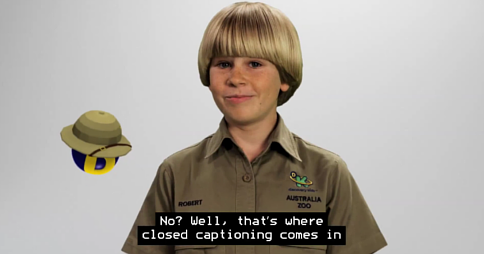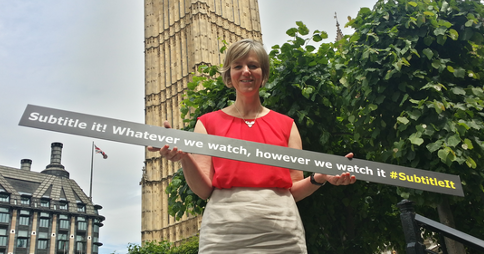Using captions to teach skills and concepts
Considering that captions are really just words used in a particular way to provide access and meaning, it challenges us as educators to ponder how we can use the opportunity these words provide. The written word has been used to teach concepts for thousands of years, so let’s look at words in the context of access. The use of captioned video ‘turns a light on’ to expose the hidden treasure – information – which lies within the video. Further learning for all students can be facilitated by releasing that knowledge in a variety of forms.
Top of page










